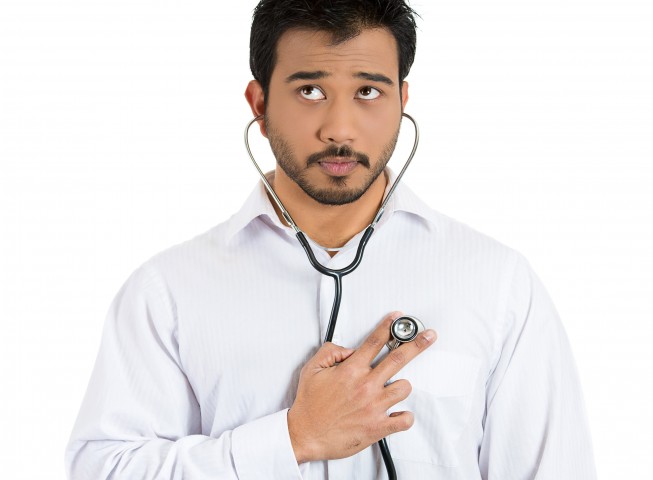
Photo: pathdoc – Fotolia
Heart disease is a general term that is used to describe many different medical conditions that can impact heart health. The term includes congenital heart defects that a person may be born with such as heart rhythm problems and problems relating to the heart’s muscles and valves. The term is also used to describe cardiovascular illness, which involve the blood vessels are usually arise from blood vessels being narrowed or blocked. That can result in chest pain, stroke or heart attacks.
Depending on the type of heart condition a person has, the symptoms of heart disease vary. Sometimes symptoms for the same condition can also be experienced differently in men and women. For example, a man dealing with cardiovascular disease may complain of chest pain, whereas a woman is more likely to experience shortness of breath, fatigue and nausea.
Here are some of the common signs that may indicate heart problems:
- Chest pain (called angina)
- Shortness of breath
- Pain, numbness, weakness or coldness in your legs or arms (occurs if the blood vessels in those parts of your body are narrowed)
- Pain in your neck, jaw, throat, upper abdomen or back
- Fatigue
- Irregular heartbeat
- Swollen feet or ankles
- Fainting
If you experience chest pain, breathlessness or fainting, make sure you see a doctor for medical assistance as soon as possible.
Though heart disease is treatable, early intervention is the most effective way to a good recovery. If you feel you are experiencing symptoms of heart disease, if you have a history of the illness in your family or if you are concerned about your risk of developing heart disease, schedule a visit and speak to a doctor about getting a checkup and preventive measures you can take.
While you may be living with heart disease and may not even be aware that something is wrong, it can lead to emergency situations. Such instances are referred to as complications due to heart disease and include:
- Sudden cardiac arrest: As the term says, this occurs very quickly and without warning, the heart stops working, and the person also stops breathing and loses consciousness.
- Heart attack: The heart itself is a muscle and needs blood to function. When one of the blood vessels that feeds the heart gets blocked by a clot or something else, the muscle may get damaged or destroyed. With proper immediate care people can recover from heart attacks, but the muscle damage may also lead to heart failure immediately or after some time.
- Aneurysm: Arteries are the blood vessels that take oxygen-filled blood away from the heart to the rest of the body. They have to contain the pressure of the blood being pumped away. If an artery has a weak spot anywhere in the body, the area could bulge, which is referred to as an aneurysm. If an aneurysm bursts, it could cause internal bleeding leading to death.
- Stroke: Clogged arteries can also lead to a stroke, which means that the brain is not getting enough blood. Brain tissue can start dying within a few minutes of the blood being cut off, and depending on how much of the brain is affected, the result may be mild to severe brain impairment.
- Heart failure: While it may not always be fatal, this is one of the most common consequences of heart disease. It means that the heart is not able to pump enough blood to the body’s needs.
Share your thoughts, leave a comment below. Please like FamiLife’s page on Facebook so that you get all our articles and others may find us.

Pingback: Flossing is essential to good health - FamiLife